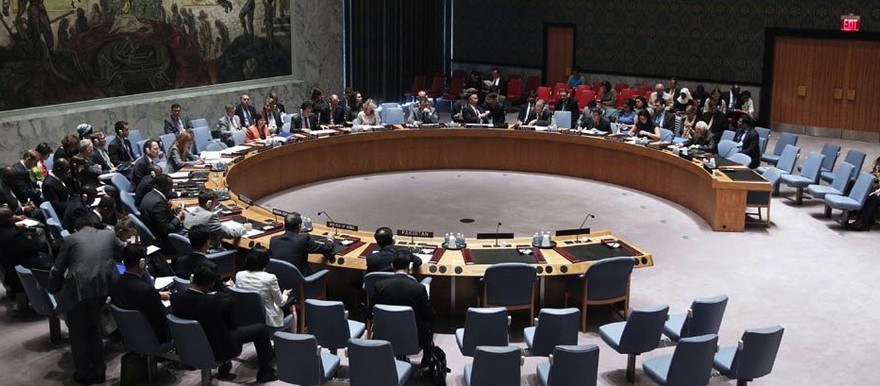The UN Security Council on Tuesday authorized peacekeepers to remain in South Sudan beyond July, the expiry date of their original mandate, and directed the mission to stop state-building activities in the country.
Under the terms of a resolution passed unanimously by the Security Council yesterday, UNMISS, the UN Mission in South Sudan will focus on protecting civilians and monitoring human rights violations, not supporting the government.
UNMISS’ previous mandate dating to 2011 had included “strengthening the capacity of the Government of the Republic of South Sudan to govern effectively and democratically.”
In its resolution, the Council requests UNMISS “focus and streamline its activities” and “recognizes that certain Mission tasks will therefore be ceased” – a reference to state-building projects that require cooperation with the government.
An outline of the mission’s new priorities had already been announced by Herve Ladsous, UN Under-Secretary-General for Peacekeeping Operations, in a speech in March,
He said that “the raison d’être of the United Nations Mission in South Sudan no longer applied,” noting, “UNMISS would suspend activities dedicated to extending State authority.”
The United States, one of five permanent members of the UN Security Council, drafted and circulated the resolution earlier this month. It generally conforms to the priorities announced earlier by Ladsous.
Reportedly, the Russians raised some objections to the US-drafted resolution last week, but the issues were resolved in direct negotiations with the Americans.
The resolution then passed at a meeting of the council yesterday. It “emphasizes that protection of civilians … must be given priority in decisions about the use of available capacity and resources within the mission.”
The council authorized UN troops to “use all necessary means” to protect civilians, monitor and investigate human rights abuses, assist the delivery of humanitarian aid and support a cessation of hostilities deal.
The troop ceiling of the mission will remain the same as authorized by a December amendment to the mandate — 12,500 troops and 1,323 police. Thousands of these troops have yet to be deployed, however.
According to the resolution, the IGAD protection force that had been earlier proposed by East African leaders will be deployed as part of UNMISS, not as a separate mission.
“UNMISS shall… include a component consisting inter alia of three battalions, with additional responsibility for protecting IGAD’s MVM [Monitoring and Verification Mechanism],” reads the resolution document.
The remaining troops authorized for UNMISS will be raised through ‘inter-mission cooperation,’ meaning redeployment from peacekeeping missions in Darfur, Haiti or elsewhere. Two or three infantry battalions may be raised from the other missions.




